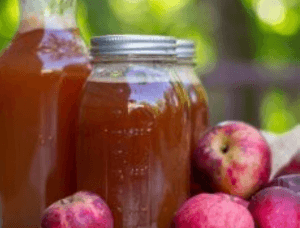What is the best Apple Cider substitute?
Looking for an apple cider substitute? If you need an alternative to apple cider for recipes or beverages, there are a few options you can consider. Try using, Sparkling Cider, White Wine, Pear Cider, Grape Juice, Apple Juice, White Grape Juice, Cranberry Juice, Pomegranate Juice, Red Wine Vinegar or Mulled Spices in non-alchololic beverages.
Remember that the choice of substitute will depend on the specific recipe or context in which you’re using apple cider. The goal is to find an alternative that matches the intended flavor, texture, and purpose of the original ingredient. So carry on reading and learn what you can use instead of apple cider.
What is Apple Cider?
Apple cider typically refers to a beverage made from pressed and fermented apples. It is a popular drink, especially during the fall season in many countries, particularly in North America and parts of Europe.
The process of making apple cider involves crushing and pressing fresh apples to extract their juice. This juice is then allowed to ferment, during which natural yeasts present on the apples or added yeast consume the sugars in the juice and produce alcohol. The fermentation process can take several weeks, and the resulting product is alcoholic apple cider.
NOTE: It’s important to note that there can be regional variations in the definition of “apple cider.” In some parts of the world, especially in the United States, “apple cider” is often used to refer to the freshly pressed, unfiltered, and unpasteurized juice of apples. This version of cider is non-alcoholic and is usually consumed as a refreshing beverage. In other regions, the term “cider” might exclusively refer to the fermented alcoholic version.
To summarize:
- Apple cider can refer to the fermented alcoholic beverage made from apple juice.
- In some places, apple cider can also refer to the non-alcoholic, unfiltered apple juice.
When talking about apple cider, it’s a good idea to clarify whether you’re referring to the alcoholic or non-alcoholic version. Remember the terminology can vary based on cultural and regional differences.
Okay, before we look at your apple cider substitute options, let’s deal with that empty cupboard situation!
Where can I buy Apple Cider?
If you want to be more prepared and ensure you don’t run out of apple cider then you should stock up now.
Nowadays most delicatessens and general supermarkets stock a wide variety of apple cider. Or if you prefer you can also purchase apple cider on-line.
So why not jump on and place your order today.
STOCK UP NOW!
100% All Natural Spiced Apple Cider Concentrate
This product contains no Added Sugar or preservatives. It is Gluten-Free and has a very long shelf life.
What can I substitute for Apple Cider?
Here are some of the best ingredients to substitute the flavor and role that apple cider provides in your recipes.
- Sparkling Cider
- White Wine
- Pear Cider
- Grape Juice
- Apple Juice
- White Grape Juice
- Cranberry Juice
- Pomegranate Juice
- Red Wine Vinegar
- Mulled Spices in non-alchololic beverages
Apple Cider substitutes
Sparkling Cider (non-alcoholic)
Using sparkling cider as a substitute for apple cider can work well in many cases, especially when you’re looking for a festive and non-alcoholic option. Sparkling cider shares some similarities with apple cider, such as its fizzy texture and fruitiness. Here are a few scenarios where you can use sparkling cider as a substitute for apple cider:
- Sparkling cider is often used as a festive drink during holidays like Thanksgiving, Christmas, and New Year’s. Serve it in champagne flutes to add an elegant touch to your celebrations. Also it is a great option for those who prefer non-alcoholic beverages.
- If you’re toasting or raising a glass for a special occasion, sparkling cider can be a wonderful stand-in for apple cider. It captures the celebratory spirit while maintaining a non-alcoholic status.
- Many mocktail recipes that call for apple cider can be easily adapted using sparkling cider. You’ll get the effervescence and fruity flavor without the alcohol.
- For children’s parties or events where you want a fun and bubbly drink, sparkling cider is an excellent choice. Kids will enjoy the fizzy sensation and sweet taste.
- In recipes that call for apple cider for flavor or moisture, sparkling cider can be used as a substitute. Keep in mind that the sweetness and carbonation of sparkling cider may slightly impact the final taste and texture of your dish.
- If you’re making a non-alcoholic sangria, substituting apple cider with sparkling cider can work well. It adds the fruity element and effervescence that contribute to the sangria experience.
When using sparkling cider as a substitute for apple cider, consider the sweetness level and adjust the amount accordingly. Sparkling cider tends to be sweeter than traditional apple cider. Therefore, you might need to reduce the amount of added sweeteners in recipes to maintain the right balance.
Ultimately, whether as a drink or an ingredient in recipes, sparkling cider can offer a lively and flavorful alternative to apple cider. It works very well in situations where you want the festive qualities of cider without the alcohol.
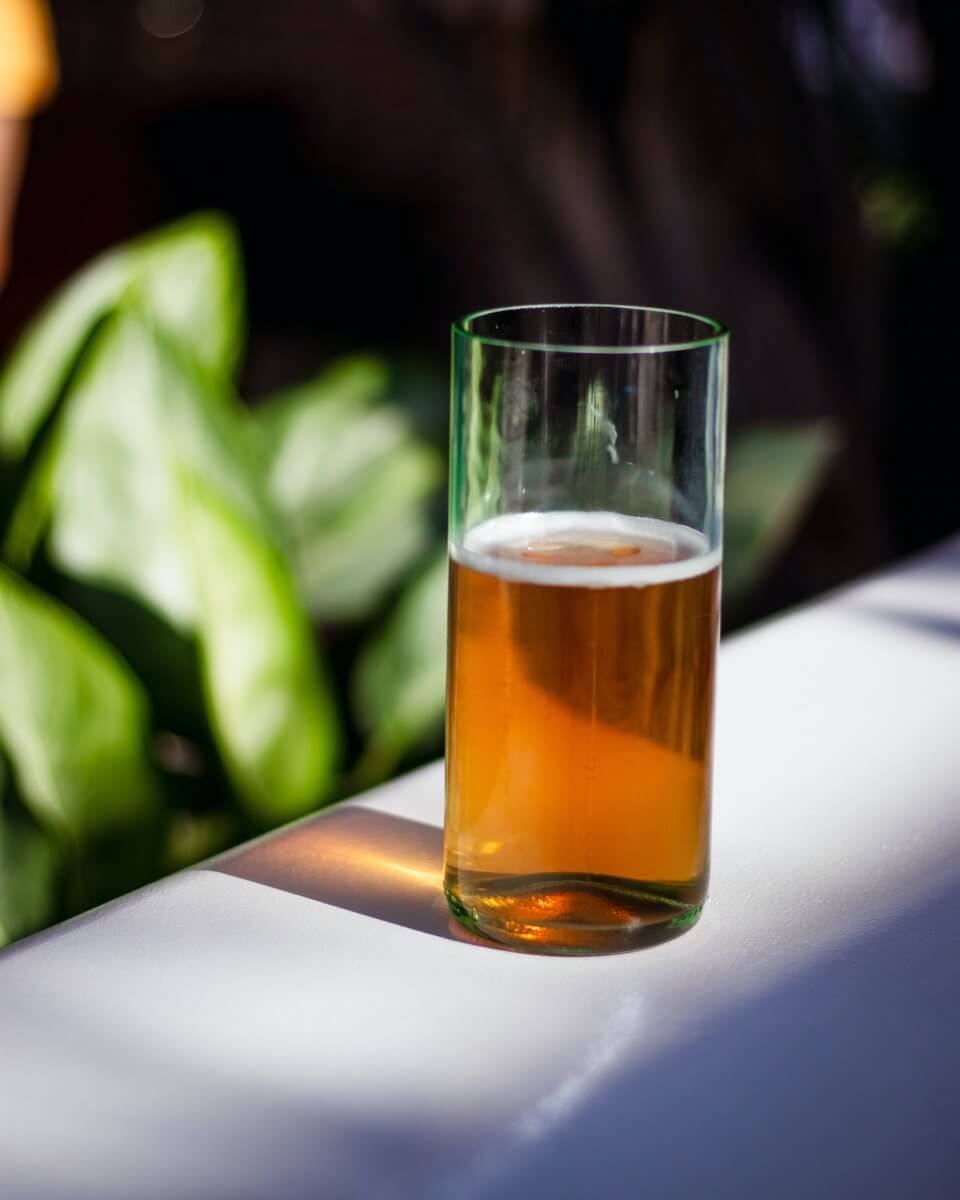
White Wine
White wine can be used as a substitute for apple cider in certain recipes, but there are a few things to keep in mind. While both apple cider and white wine can contribute acidity and flavor to dishes, they have distinct characteristics that might affect the final outcome. Here are some scenarios where white wine can be a substitute for apple cider:
- In savory recipes that call for apple cider, white wine can often serve as a suitable substitute. Think of recipes such as such as sauces, marinades, or braised dishes. It provides acidity, depth of flavor, and a bit of moisture to your dishes. However, remember mind that white wine has a more pronounced alcoholic taste than apple cider. Therefore, the final flavor profile may differ slightly.
- When deglazing a pan after cooking meat or vegetables, white wine can replace apple cider. It helps to lift the flavorful bits from the bottom of the pan and create a delicious sauce.
- In recipes that involve poaching fruits in apple cider, you can use white wine as a substitute. The wine will infuse with the fruit, while also adding a touch of acidity.
- When using white wine instead of apple cider remember you might need to adjust some of the other ingredients to balance the flavors properly. White wine tends to be more acidic and less sweet than apple cider.
It’s important to note that white wine and apple cider do have different flavor profiles. For sweeter recipes or beverages that rely on the unique flavor of apple cider, white wine might not provide the desired results. Additionally, if the recipe specifically calls for apple cider for its non-alcoholic nature, using white wine will introduce alcohol to the dish.

Pear Cider (non-alcoholic)
Pear cider, also known as perry, can be a suitable substitute for apple cider in various recipes and beverages. Since they both share similarities in terms of their fruity and slightly tart flavors, pear cider can often be used as an alternative. Here are some scenarios where pear cider can be a substitute for apple cider:
- Pear cider is an excellent alternative if you’re making mulled cider, where the cider is heated with spices like cinnamon and cloves. The spices will complement the natural flavors of pear cider.
- In recipes that call for apple cider, such as glazes or marinades, pear cider can work well as a substitute. It will provide a similar level of acidity and fruity sweetness.
- For non-alcoholic beverages that require apple cider, pear cider can offer a delicious and refreshing alternative. It will contribute a unique pear flavor while still providing the underlying characteristics of cider.
- Use pear cider in place of apple cider to create sauces or reductions. It will add complexity to the sauce’s flavor profile while providing the necessary liquid component.
- Use pear cider to poach fruits. The pear cider will infuse the fruits with its flavors, resulting in a tasty and aromatic dessert.
Remember pear cider does have its own distinct flavor compared to apple cider. This might influence the final taste of your dish or drink. Pear cider tends to be slightly sweeter and may have a more pronounced pear aroma. Therefore, when substituting pear cider for apple cider, consider how the flavor will affect the other ingredients in your recipe.
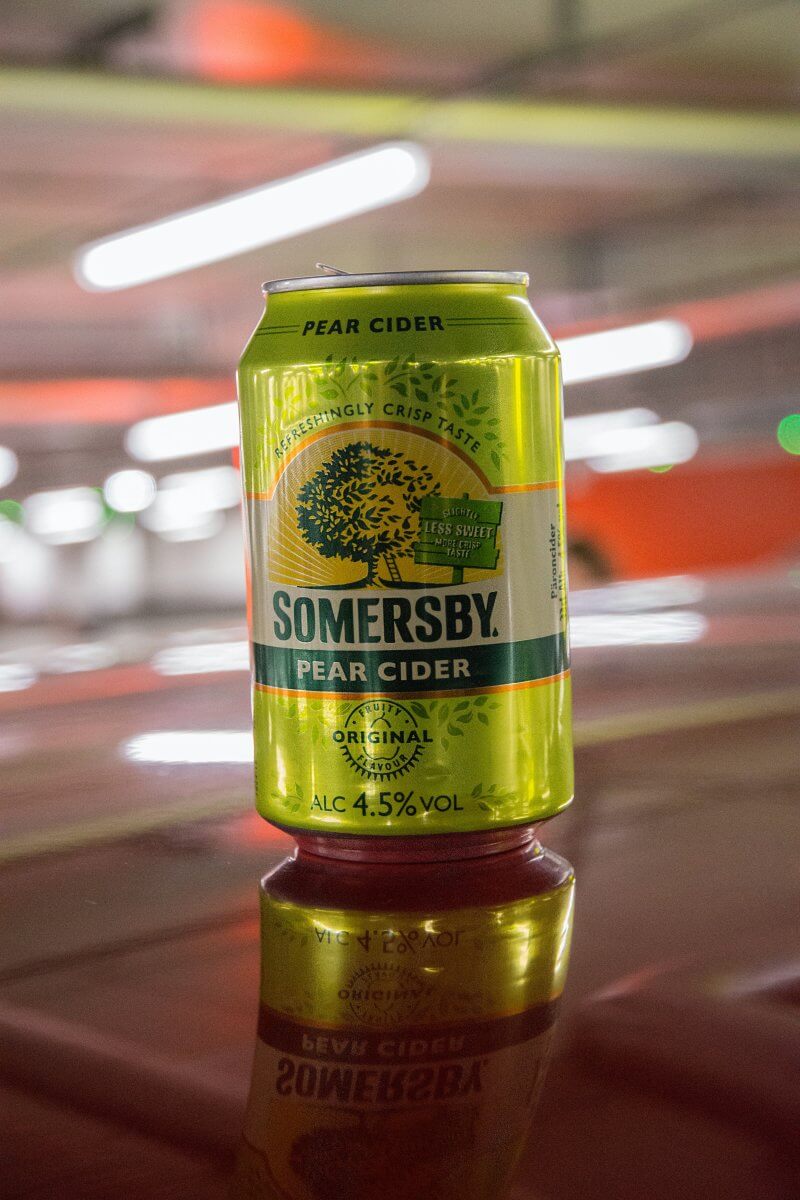
Grape Juice
Using grape juice as a substitute for apple cider can work in some recipes and situations. While both grape juice and apple cider are fruit-based liquids, they have distinct flavors and characteristics that can impact the final result. Here are some scenarios where grape juice can be used as a substitute for apple cider:
- In recipes that require apple cider for moisture, flavor, or acidity, grape juice can be used as a substitute. Remember grape juice tends to be sweeter than apple cider, so the overall taste of the final dish might be slightly sweeter.
- If you’re looking for a non-alcoholic alternative for apple cider, such as punches or mocktails, grape juice can be a good option. It offers a natural sweetness and a vibrant color, making it suitable for refreshing drinks.
- Use grape juice to poach fruits or marinate meats in recipes. However, remember the grape flavor might be more pronounced, so it could change the overall taste of the dish.
- In recipes that use apple cider to create sauces or glazes, grape juice can serve as a liquid base. Always adjust other ingredients to balance the sweetness and flavor.
- If the color of the dish or drink is important, grape juice’s deep purple colour may provide a visually appealing substitute for apple cider.
Remember that grape juice has a distinctive grape flavor, which might not always match the desired taste of the original recipe. It’s a good practice to start with a smaller quantity of grape juice and adjust as needed. Additionally, consider the sweetness level of the grape juice and make any necessary adjustments to other sweeteners in the recipe.

Apple Juice
Apple juice can often be a suitable substitute for apple cider in various recipes and beverages, especially when you’re looking for a similar flavor profile without the alcoholic content. Since both apple juice and apple cider are made from pressed apples, they share many similarities in taste and characteristics. Here are some scenarios where apple juice can be used as a substitute for apple cider:
- In recipes that call for apple cider to provide moisture, sweetness, or acidity, apple juice can be a great substitute. However, keep in mind that apple juice is typically sweeter than apple cider. Therefore, you may want to reduce the amount of added sugar or sweeteners in the recipe.
- Use apple juice in drinks such as punches, mocktails, or hot drinks. It provides the natural apple flavor without the alcohol.
- Apple juice can be used as a base for sauces, glazes, or reductions that call for apple cider. The flavor will be similar, although the sweetness might need to be adjusted.
- Use apple juice in recipes that involve marinating meats or poaching fruits. It will contribute a fruity and slightly tart taste similar to apple cider.
- Use apple juice in cocktails that call for apple cider. The apple juice will provide a similar flavor profile without the alcoholic content. Adjust other ingredients to balance the flavors.
- If a recipe calls for apple cider and you want to reduce or eliminate the alcohol content, using apple juice is a straightforward way to achieve this.
Keep in mind that while apple juice is a close substitute for apple cider, there may be some subtle differences. This could be in relation to overall flavor intensity and sweetness.
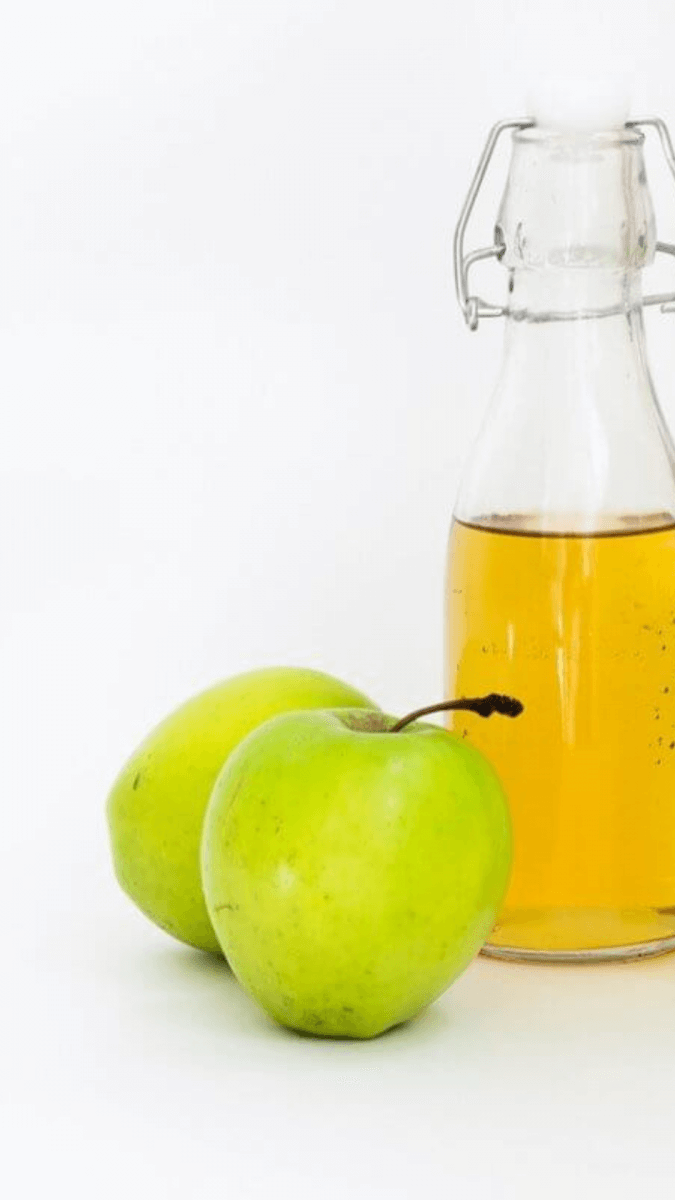
White Grape Juice
White grape juice can work as a substitute for apple cider in certain recipes and beverages, but there are a few factors to consider. While both white grape juice and apple cider are fruit-based liquids, they have distinct flavors that can affect the overall taste of your dish or drink. Here are some scenarios where white grape juice can be used as a substitute for apple cider:
- White grape juice can be a good substitute for apple cider in non-alcoholic beverages like punches, mocktails, and spritzers. It provides a sweet and slightly tart flavor that complements various flavors.
- In recipes that require apple cider for moisture, acidity, or flavor, white grape juice can be used as a substitute. However, remember that white grape juice tends to be sweeter and milder in flavor. Therefore, you may need to adjust other ingredients to balance the taste.
- Use white grape juice as a liquid base to create sauces, glazes or reductions in recipes that call for apple cider. Adjust other ingredients to maintain the desired flavor profile.
- Use white grape juice in recipes that involve marinating meats or poaching fruits. Its natural sweetness and acidity can enhance the dish’s flavor.
- If a cocktail recipe calls for apple cider, white grape juice can be used to provide a similar level of sweetness and tartness. You may need to adjust the other cocktail ingredients as needed.
- If you’re looking to avoid alcohol, using white grape juice can help maintain the flavor profile of the original recipe.
It’s important to note that white grape juice has its own distinct grape flavor. Additionally, white grape juice is typically sweeter than apple cider. Therefore, you may want to adjust the sweetness of your recipe accordingly.
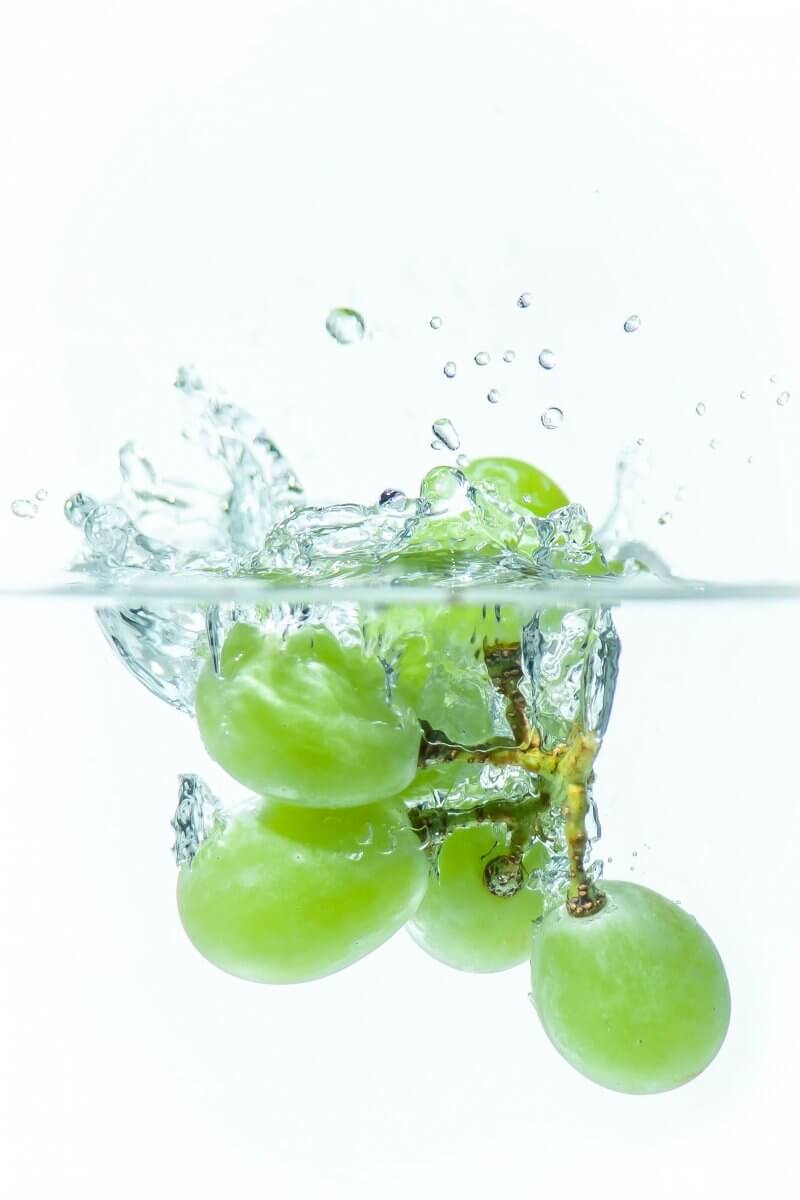
Cranberry Juice
Using cranberry juice as a substitute for apple cider can also work in some recipes and beverages. Cranberry juice has a tart and slightly bitter taste compared to the sweeter and milder flavor of apple cider. Here are some scenarios where you can use cranberry juice instead of apple cider:
- If you’re looking to add a tart and tangy element to cocktails or mixed drinks that typically use apple cider, cranberry juice can offer a unique twist. It can also add a vibrant color and a refreshing taste.
- Use cranberry juice as a substitue for non-alcoholic beverages like punches, mocktails, and spritzers. Keep in mind that cranberry juice is tart, so you may need to balance it with sweeter ingredients.
- In certain recipes that use apple cider for flavor, moisture, or acidity, cranberry juice can be used as a substitute. However, consider that the tartness of cranberry juice might alter the overall taste of the dish.
- Use cranberry juice as a liquid base for sauces and reductions that call for apple cider. Adjust other ingredients to balance the flavors, as cranberry juice can contribute a unique tanginess.
- Use cranberry juice in recipes that involve poaching fruits or marinating meats. Its tartness can enhance the dish’s flavor.
- If you’re infusing fruits with liquid for a dish or dessert, cranberry juice can provide a distinctive flavor that contrasts with the sweetness of the fruit.
Keep in mind that cranberry juice’s tartness may affect the balance of flavors in your recipe, especially if the original recipe relies on the mild sweetness of apple cider. It’s a good practice to start with a smaller amount of cranberry juice and adjust as needed based on your preferences and the specific dish you’re preparing.
When substituting cranberry juice for apple cider, consider whether the tartness of cranberry complements the other ingredients in your recipe or the overall taste you’re aiming for.

Pomegranate Juice
Using pomegranate juice as a substitute for apple cider can add a unique and vibrant twist to your recipes and beverages. Pomegranate juice has a distinct sweet-tart flavor and a rich color that can bring a new taste and visual dimension to your dishes. Here are some scenarios where pomegranate juice can be used as a substitute for apple cider:
- Pomegranate juice can be an excellent substitute for apple cider in cocktails and mixed drinks. It adds a rich color, a sweet-tart flavor, and a touch of elegance to your beverages.
- For non-alcoholic beverages like punches, mocktails, and spritzers, pomegranate juice can provide a refreshing and flavorful alternative to apple cider.
- Use pomegranate juice as a substitute in recipes that require apple cider for flavor or moisture. Its unique taste can add complexity to dishes like sauces, marinades, and braises.
- Use pomegranate juice to create sauces and glazes. The sweet-tart nature of pomegranate juice can work well in enhancing the overall taste of your dish.
- Use pomegranate juice for poaching fruits or infusing liquids, adding its distinctive flavor to the final product.
- Use pomegranate juice’s deep red color to enhance the appearance of your dishes and beverages.
While pomegranate juice can be a flavorful substitute for apple cider, it’s important to note that its flavor profile is distinct and may not match every recipe that calls for apple cider. The sweet-tart nature of pomegranate juice might alter the overall taste of the dish, so consider the flavor balance and whether it complements the other ingredients.
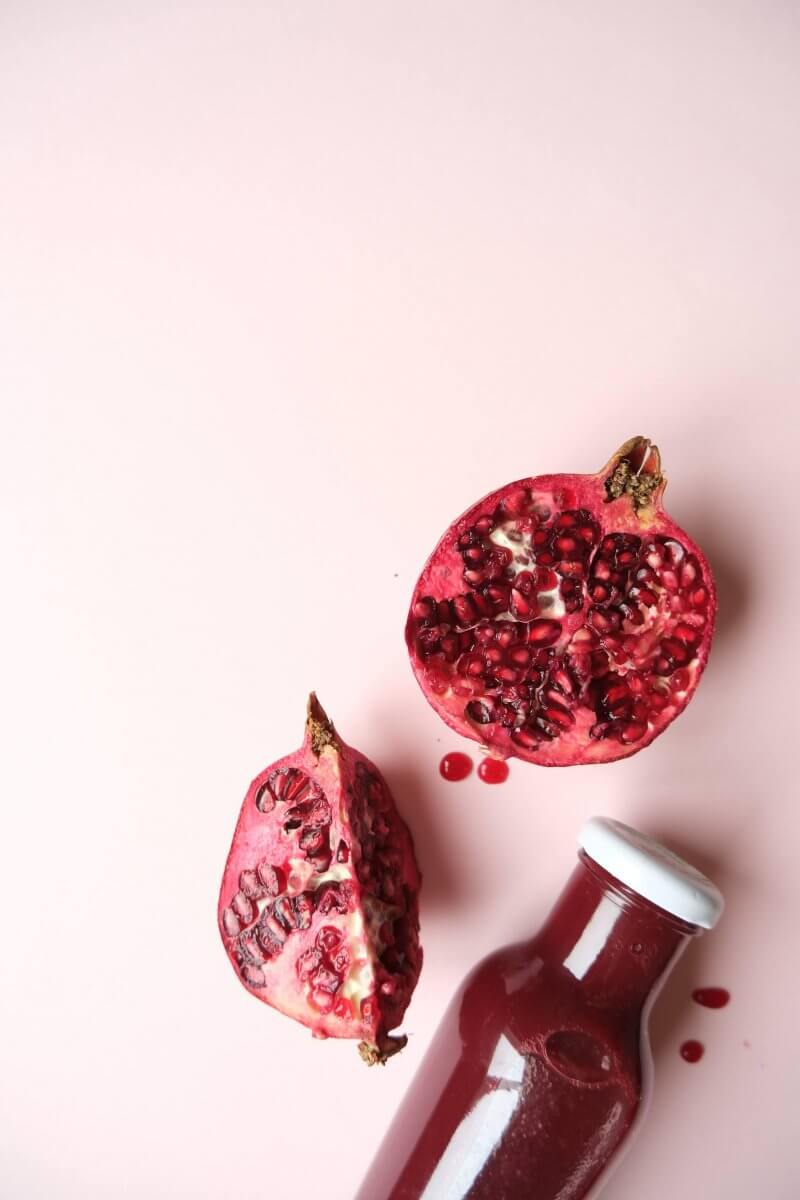
Red Wine Vinegar
You can use red wine vinegar as a substitute for apple cider in certain recipes. However, remember that red wine vinegar has a distinct tangy and acidic flavor that differs from the fruity sweetness of apple cider. Here are some scenarios where you can use red wine vinegar instead of apple cider:
- Use red wine vinegar in salad dressings as a substitute for apple cider, especially in vinaigrettes. It provides a delicious tangy and acidic element that can enhance the overall flavor of the dressing.
- Use red wine vinegar as an alternative for marinating or pickling, if a recipe calls for apple cider. However, consider that the acidity of red wine vinegar is more pronounced, so you may need to adjust the quantity and balance it with other ingredients.
- When deglazing a pan after cooking meat or vegetables, use red wine vinegar to lift the flavorful bits from the bottom of the pan and create a delicious sauce.
- Use red wine vinegar to create tangy sauces and reductions, adding depth and complexity to your dishes.
- In recipes that require apple cider for acidity, red wine vinegar can work as a substitute. Keep in mind that the taste will be tangier and more pronounced.
However, due to the significant difference in taste between red wine vinegar and apple cider, it’s important to consider whether the substitution will work well with the overall flavor profile of the dish. The tartness of red wine vinegar might not be suitable for recipes that rely on the natural sweetness of apple cider.
If you decide to use red wine vinegar as a substitute for apple cider, start by using a smaller quantity and taste as you go.
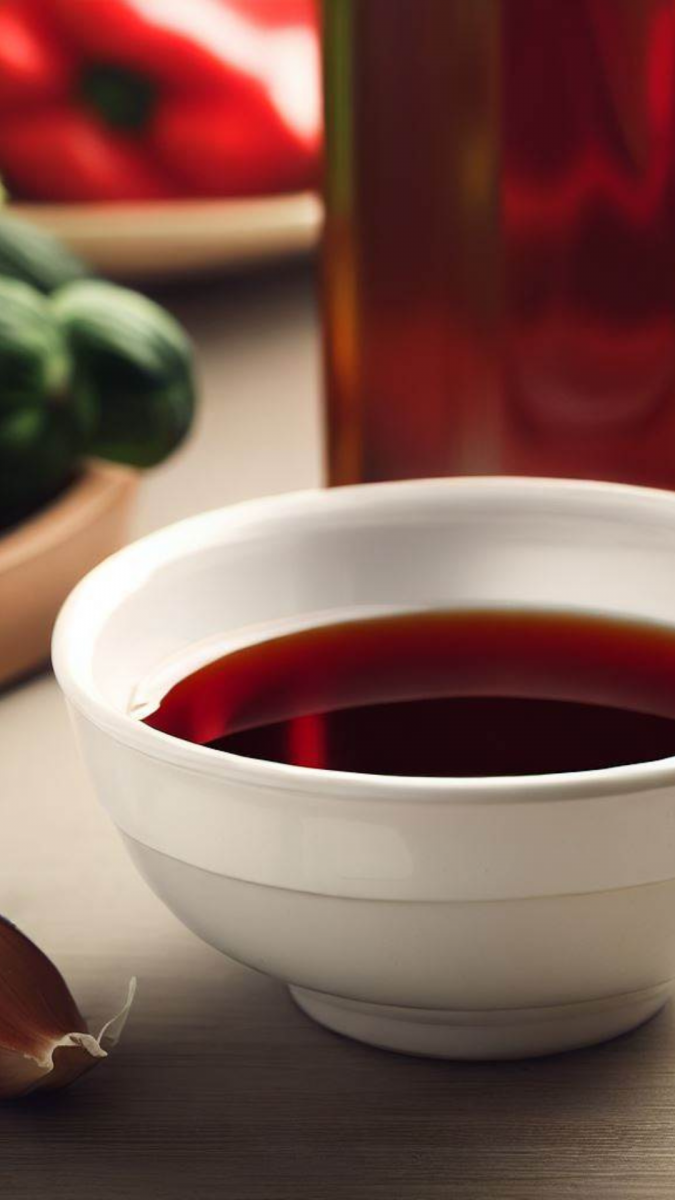
Mulled Spices in non-alchololic beverages
Using mulled spices in non-alcoholic beverages as a substitute for apple cider can be a flavorful and creative option, especially if you want to capture the warm and aromatic essence of mulled beverages without using apple cider. Here are a few ideas for incorporating mulled spices into non-alcoholic drinks:
- Create a spiced infusion by simmering mulled spices in water. Strain the infused water and sweeten with honey or another sweetener if desired. This will give you a warm and aromatic beverage with the essence of mulled spices.
- Brew a mild herbal tea, like chamomile or rooibos, and add mulled spices to the steeping process. Strain the tea and enjoy the subtle spiced flavor.
- As mentioned earlier, you can mull fruit juices like grape juice, cranberry juice, or pomegranate juice with mulled spices to create a flavorful and non-alcoholic alternative to mulled cider.
- Add mulled spices to a cup of hot chocolate for a spiced twist on this classic beverage. The spices can complement the rich flavors of the chocolate.
- Create a unique drink by adding mulled spices to freshly squeezed lemon juice. Dilute with water, sweeten, and heat for a spiced lemonade.
- While not a direct substitute for apple cider, you can warm apple juice and infuse it with mulled spices to create a spiced apple-flavored drink.
To use mulled spices in these beverages, gently simmer the spices in your chosen liquid for a period of time, allowing the flavors to infuse. Strain the liquid to remove the spices before serving. You can adjust the types and amounts of spices to match your taste preferences and the flavors you want to highlight.
Keep in mind that using mulled spices in non-alcoholic beverages can give you the warmth and aroma associated with mulled cider, even if you’re not using apple cider as the base. It’s a versatile and flavorful way to create festive and comforting drinks.
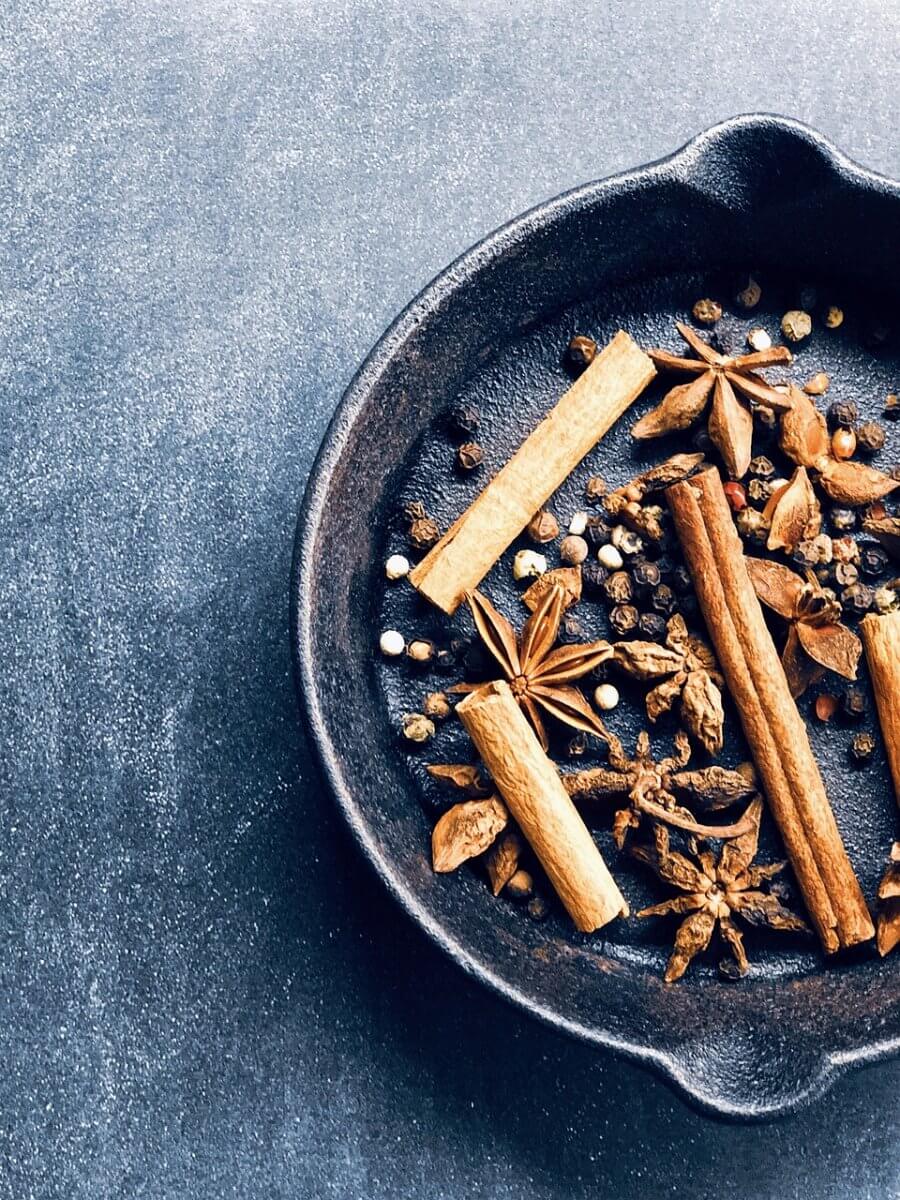
Summary for Apple Cider substitutes
Okay – that’s you all sorted with suitable substitutes for apple cider.
Apple cider is a beverage made from pressed and fermented apples. It can refer to both the alcoholic fermented version and the non-alcoholic unfiltered apple juice. It’s commonly enjoyed during the fall season and has a sweet and slightly tart flavor.
- Substitutes for Apple Cider:
- Sparkling Cider: A non-alcoholic fizzy alternative for celebrations and festive occasions.
- Pear Cider (Perry): Offers a similar fruity flavor to apple cider, with a touch of pear.
- Grape Juice: Provides a sweet and fruity taste that can work in certain recipes and beverages.
- White Grape Juice: A milder version of grape juice that can be used in various applications.
- Cranberry Juice: Brings tartness and a unique flavor to dishes and beverages.
- Pomegranate Juice: Offers a rich and vibrant fruity flavor that adds a unique twist.
- Mulled Spices: Use in non-alcoholic beverages to infuse warm drinks with aromatic flavors.
- When substituting, consider the intended flavor profile, sweetness, acidity, and overall purpose of the ingredient in the recipe or drink. Taste testing and adjustments are key to achieving the desired results.
- Keep in mind that each substitute has its own distinct flavor, and the best choice depends on the specific recipe and your personal taste preferences.
For specific situations:
- Sparkling cider is great for celebrations and non-alcoholic toasts.
- Pear cider (perry) offers a similar fruitiness to apple cider.
- Use grape juice and white grape juice for their sweet and mild flavor.
- Cranberry juice brings tartness to recipes and beverages.
- Pomegranate juice provides a unique and vibrant flavor.
- Mulled spices infuse beverages with warm and aromatic qualities.
Choose the substitute that best fits the context and purpose of your recipe or beverage. Remember to experiment and adjust as needed to achieve the desired taste and outcome.
We have gathered together a lot more facts on ingredients such as herbs, spices, oils, nuts, etc. if you would like to learn some more.
